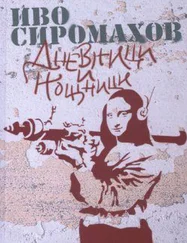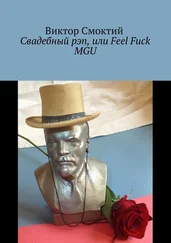There was nothing more to say. But Thomas still wanted to keep talking. He asked, “And the telephone number. That note in his back pocket. Have you gotten anywhere with that?”
Hägerström tried to explain. “We still can’t decipher the last digit in the number. We’ve looked up every possible combination that’s linked to a phone plan. That’s all of them except for two. We’ve looked up the people connected to those plans. Of the eight, we’ve brought five in for informational questioning, and it hasn’t led anywhere. You know, they just don’t have anything to do with this. They have no idea who the dead man might be, two were under twelve years old, and so on.”
Thomas listened tensely. Damn it, not even when he was working on his Cadillac could he drop the thoughts of that murder. He asked the obvious question: “And the two prepaid plans? Have you ordered lists from the phone companies?”
Hägerström laughed. “Maybe you should be a detective, Andrén.”
Thomas ignored the comment. Hägerström probably didn’t mean to mess with him.
Hägerström went on, “We’ve ordered and received the lists. We still can’t see who took out the prepaid plans; you can’t see that with those kinds of plans. But we can see what other numbers the two prepaid cards have called. Based on that, I expect to know who the two plan owners are within a few days. Then we move on and bring them in for questioning. But that’s going to take a whole bunch of phone calls.”
Thomas thought: that kind of busywork was typical detective crap. Hägerström only had himself to blame, that office rat. Still: Thomas would consider helping him.
Later that night: time for some reality—intervention work. In normal speak: patrolling. Thomas was standing by his locker in the changing room. Preparing himself for a night in the cruiser with Ljunggren. Despite the routine, the uneventfulness of it all, the boredom—patrolling was when things happened. Thomas always looked forward to these rounds. The crackle from the radio, their grins when they ignored a call and chilled in the car instead. And then, sometimes, when shit hit the fan, it really came flying.
Ljunggren hadn’t shown up yet. They still hadn’t talked about the morgue incident the other day. Thomas looked forward to discussing the case. To hearing Ljunggren’s thoughts. He wondered where he was. Ljunggren wasn’t usually late.
Thomas got dressed slowly. Like a ritual. The M04 jacket and pants for outerwear: thick, dark blue material made of aramid fibers. Water-repellent, fire-resistant, junkie-hag-with-dirty-fingernails-proof. But Thomas didn’t like it—the reflector tape over the chest was nerdy, the absence of a drawstring at the bottom of the jacket made it feel baggy, the crisp noise it made when you walked sounded like ski clothes. The old uniform was better.
His belt rattled like a toolbox: the collapsible baton in a holder, handcuffs, radio, pepper spray, helmet holder, the old baton holder, key chain, a Leatherman, a gun holster. At least twenty-two pounds of gear.
He saw the body in front of him. The track marks. The washed cuts in the face that wasn’t a face anymore. The tag around the big toe. The pale, bluish skin that almost looked waxy. He didn’t know why he just couldn’t just let the issue go.
It was obvious: he ought to do something. With or without Hägerström. On the other hand—why should he care? Saving the world, that wasn’t his calling. It wasn’t his style to go out of bounds and be all serious. Not his thing to nail other cops. He should drop it. Stop thinking about it. Keep doing his own little deals. Keep cashing in a few kronor here and a few kronor there.
He got his gun out of the firearms locker. SIG Sauer P229, semiautomatic, 9 millimeter. Eight cartridges. The gun was completely made of matte black metal, with grooves on the grip. Small—but still better than the old gun, the Walther. Everyone in the Southern District knew where Thomas stood on these issues. A few years ago, a petition was made among the patrol officers: all police inspectors with the requisite license should be allowed to carry a personal firearm. Real stuff, like a Colt .45. Thomas’s name topped the list. Of course. When you had to fire for effect, the Walther would stop a high-charging lunatic with an ax about as effectively as if you were shooting a spitball through a straw. So, how would that end? With one, two, three shots to the chest. Then the policeman would catch heat ’cause the asshole happened to die. Give the police real weapons so that they could bring down a threatening perp right away, with one shot to the leg. So many fewer would bite the dust. The current SIG Sauer was a step in the right direction. Bullets that expanded on contact with tissue—spread at impact. Perfect.
Where the hell was Ljunggren? Thomas was dressed, charged up. Ready for a ride through reality. He picked up the intercom phone hanging on the wall by the lockers.
Katarina, the coordinator in charge tonight, picked up.
“Hiya, Andrén here. You know where Jörgen Ljunggren is?”
“Ljunggren had to cover for Fransson. So we’re having Cecilia Lindqvist drive with you. She’s on her way. Should be there in a few.”
“Excuse my French, but who the fuck is Cecilia Lindqvist?”
“A new patrol—you haven’t met her? She started four months ago.”
“You’re kidding. You want me to go on the beat with a cadet? I’d rather drive alone.”
“Cut it, Andrén. That’s against the rules. She’ll be there any minute. Stop whining and start loading.”
Thomas sighed. Katarina was a hardass. He liked her.
“Hey, you have to double check your scheduling. This is bullshit.”
“Yeah, right. You think I’m in charge of this?”
“No, I know. I’ll have to talk to management. I gotta go now. See ya.”
He started packing. Took out his bag, as big as a hockey trunk. Loaded up the heavier gear first: the leg guards, the helmet, and the gas mask on the bottom. Then the caution tape, flares, an extra radio, a first-aid kit, the old rubber baton, and a reflector vest. In the side pocket: forms, rubber gloves, and the Breathalyzer.
He dragged the bag and the heavy bulletproof vest out to the garage. Straight to their spots in the trunk.
And when exactly was this Cecilia planning on showing up? Did she think she was going out on some little exercise, or something? The rabble couldn’t care less that she was green. The rabble didn’t wait for late arrivals. He couldn’t wait around any longer.
He got into the car. Called Katarina again.
“I’m leaving. Cecilia Lindqvist still hasn’t showed. When she deigns to arrive, I can swing by and pick her up.”
“Okay, you do what you want. But you know what I think. I’ll tell her.”
He started the car. It would feel kind of good to be patrolling by himself for a while tonight. He needed time to think.
Right when he started backing out from the parking spot, the door to the garage flew open. A girl came running toward him, her trunk flung over her shoulder. He stopped. Rolled down the window. Looked at her.
She said, “Hi, I think we’re patrolling together tonight.”
Thomas eyed her: Cecilia looked okay. Medium-dark blond, short hair. Distinct cheekbones. Blue-green eyes. She seemed stressed out. Her forehead: sweaty.
Thomas pointed to the trunk.
“Throw it in back. Did you bring the heavy vest, too?”
“No, I was going to go back in for it. Will you wait?”
Thomas looked at her. He couldn’t believe they hired people who couldn’t even carry the trunk and the heavy vest at the same time.
An hour of boredom later. Cecilia tried to talk. Thomas thought she almost seemed hysterically scared of silence in the car. She discussed the differences between the Police Academy’s current program and the way it’d been back in his day. Thomas wondered why she thought she had a clue. She asked questions about the chiefs in the Southern District. Commented on the attorney general’s latest proposal to increase the uniformed presence on the street. Thomas wasn’t interested. Didn’t she get it? Sometimes it was okay to just listen to the police radio without talking.
Читать дальше












